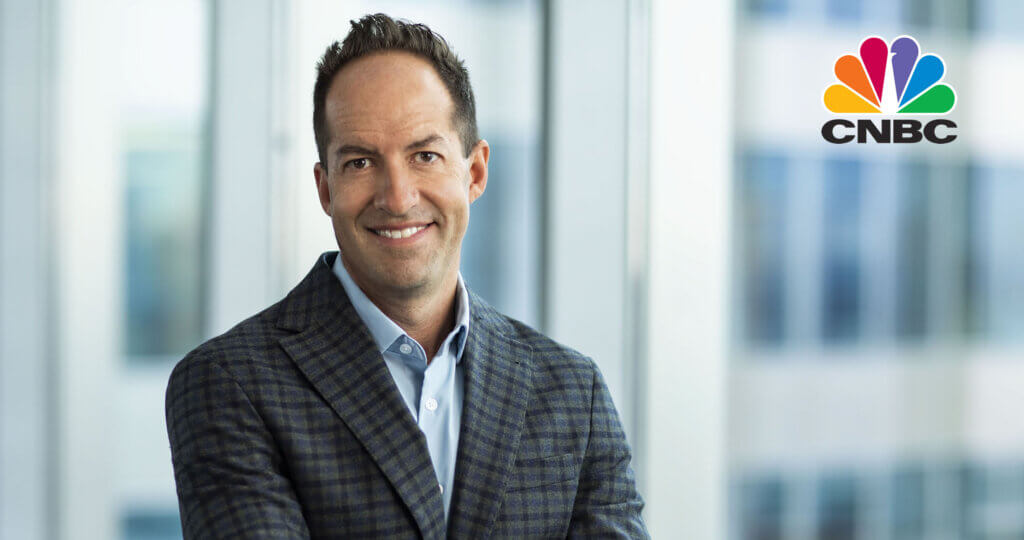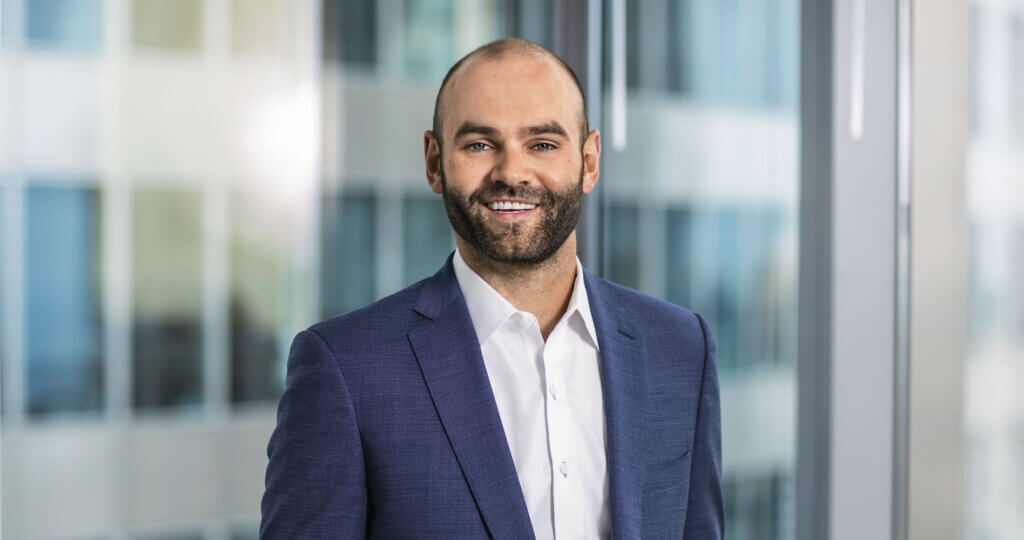Oakmark Global Fund – Investor Class
Average Annual Total Returns 12/31/21
Since Inception 08/04/99 10.28%
10-year 11.20%
5-year 11.56%
1-year 18.80%
3-month 3.94%
Gross Expense Ratio: 1.14%
Net Expense Ratio: 1.12%
Expense ratios are based on estimated amounts for the current fiscal year; actual expenses may vary.
The net expense ratio reflects a contractual advisory fee waiver agreement through January 27, 2022.
Past performance is no guarantee of future results. The performance data quoted represents past performance. Current performance may be lower or higher than the performance data quoted. The investment return and principal value vary so that an investor’s shares when redeemed may be worth more or less than the original cost. To obtain the most recent month-end performance data, view it here.
Quarter Review
Omicron, delta, beta, alpha—we are all getting more familiar with the Greek alphabet. When we wrote this Fund’s report one year ago, several promising Covid-19 vaccines offered renewed hope. Stocks rallied vigorously in 2020’s fourth quarter, and companies that had previously suffered from pandemic fears generally enjoyed a meaningful recovery. One year later, we realize that the pandemic fight will be a more protracted battle with ups and downs, and equity investors today are favoring companies that are more insulated from the pandemic. In the U.S., this trend has created extremely concentrated results: since April, a mere five stocks accounted for more than half of the increase in the S&P 500 Index. In contrast, more than 1,300 stocks that trade on the U.S. NASDAQ Index have declined 50% or more from their 52-week highs and 80% are down at least 10%.1
Of course, many factors aside from Covid-19 have influenced stock markets. Voters in recent elections have shifted leftward, often disquieting investors. Labor has become restive, with more frequent strikes and union organization efforts, even in such unlikely locations as individual Starbucks stores. Supply chain issues have arisen in many industries, especially semiconductors, the shortage of which has significantly impaired worldwide automobile production. Price inflation in some developed countries has accelerated to rates last experienced in the 1980s. Many countries assign the task of controlling price inflation to their monetary authorities, and they are beginning to respond. The Bank of England actually raised interest rates in December, and the U.S. Federal Reserve has begun to reduce its bond purchases (the so-called “taper”). Monetary policy has supported markets since the pandemic began, but with accelerating inflation, this support is diminishing.
International markets continued their pattern of lagging behind U.S. returns in the quarter in part because of superior U.S. economic growth but also due to local factors. The Chinese market declined as more companies found themselves subjected to increased regulatory supervision. The Turkish lira dropped severely as currency traders lost confidence in President Erdogan’s monetary policy. Russia’s President Putin increased international tension by stationing a large army on the Ukraine border. In Germany, a new coalition government was formed, ending the 16-year leadership of Chancellor Angela Merkel, and it took control as the country faced a surge in price inflation and a possible energy crisis. Nevertheless, despite the world’s many challenges, we continue to identify value opportunities—in fact, these challenges often help to create the opportunities that we attempt to exploit.
Although the Global Fund earned a solid 3.9% in the quarter, this lagged behind the MSCI World Index’s 7.8% return in the period and the Lipper Global Fund Index’s gain of 4.4%. The Fund’s allocation to international equities significantly exceeded the MSCI World Index allocation, and the poor relative performance outside the U.S. caused part of the Fund’s return shortfall. For all of calendar 2021, the Fund returned 18.8%, which contrasts to 21.8% for the MSCI World Index and 15.5% for the Lipper Global Fund Index. Since its inception in 1999, the Fund has achieved a compound annual rate of return of 10.3%, which compares to 6.4% for the MSCI World Index and 6.6% for the Lipper Global Fund Index.
For the quarter, the countries that contributed the most to the Fund’s return were the U.S., Germany and the U.K., while China, India and Mexico were detractors. Reflecting the strong relative performance of the U.S. stock market, the five largest equity contributors to Fund return in the quarter were all American: TE Connectivity, Tenet Healthcare, Alphabet, General Motors and Humana. The Fund holdings that detracted most were Alibaba Group (China), Liberty Broadband (U.S.), Flowserve (U.S.), Grupo Televisa (Mexico) and Axis Bank (India).
For all of 2021, the U.S., U.K. and Germany contributed most to investment return, while China, Switzerland and South Africa detracted. Leading return contributors for the year were Alphabet, Tenet Healthcare, General Motors, Bank of America (U.S.) and Lloyds Banking Group (U.K.). Credit Suisse (Switzerland), Alibaba Group, Continental (Germany), Naspers (South Africa) and Flowserve detracted most from returns. Although Naspers’ domicile is far from China, its poor 2021 performance largely derives from the price decline at the company’s large investment in Tencent, a Chinese internet and video game company.
Portfolio Activity
We added one new position in the quarter and received shares of another from a spinoff transaction. We eliminated two international holdings and one U.S. holding. Portfolio activity and disparate market outcomes caused the U.S. allocation to increase by nearly 2% in the period. Of course, during the quarter we worked to add value by opportunistic additions to existing holdings while trimming others as they approached our sell targets. We state an intention to hold equities for three to five years, and our 25-35% turnover ratio is consistent with that intention. Nonetheless, portfolio activity is more robust than the turnover rate suggests.
We purchased shares of Willis Towers Watson after the company’s deal to merge with Aon broke down. Willis Towers Watson is a global leader in advisory and risk broking services. Under the leadership of a new CEO and a reconstituted board of directors, we believe Willis Towers Watson has an opportunity to create significant shareholder value. Specifically, management sees a path toward mid-single-digit or greater organic revenue growth, several hundred basis points of operating margin improvement, and higher free cash flow conversion over the next few years. In addition, the company is in the process of repurchasing several billion dollars of stock. Willis Towers Watson also has a new COO, CFO and a new head of transformation in place to oversee its operational initiatives, including common global platforms, “right-shoring” of operations, real estate rationalization and technology modernization. If the turnaround is successful, the company should warrant a higher multiple that is more in line with other leading advisory and broking firms and on a higher earnings base.
We received shares of Daimler Truck when it was spun out of Daimler AG in early December. Daimler Truck is the world’s largest commercial truck manufacturer, holding the top position in North American and European markets. The spin-off from Daimler represents a turning point for the business that will allow it to receive more focus, pursue its own strategy and enter into value-added partnerships. We believe that management has offered a credible plan to significantly improve margins by increasing service attachment, reducing fixed costs, and generating more customer-focused and localized products and distribution networks. In our view, the dramatic turnaround at Mercedes-Benz—combined with the significant profitability of its premium-truck peers, like Volvo and Scania—indicate Daimler Truck’s attractive potential and lend support to management’s high single-digit EBIT margin and cash flow conversion targets.
Our two international final sales were Cap Gemini (France) and Richemont (Switzerland), which we sold because their shares approached our estimates of intrinsic value. We redeployed the capital from these exits into existing portfolio holdings that possessed more attractive return profiles.
Our U.S. final sale was Johnson Controls, a leading global supplier of fire detection and HVAC (heating, ventilation and air conditioning) systems. We originally purchased the shares believing that the new management team had the potential to improve profit margins meaningfully. Management has made progress on this goal, but part of this progress must be attributed to Covid-19. The pandemic inspired building owners to invest aggressively in new air handling and filtration systems, a Johnson Controls specialty. Management also executed a well-timed portfolio transaction, selling the company’s traditional car battery business for a good price before the trend favoring automotive electrification became dominant. The company’s stock has performed well over the past year, and we sold the Fund’s shares to reinvest in undervalued holdings.
Currency Hedges
We defensively hedge a portion of the Fund’s exposure to currencies that we believe to be overvalued versus the U.S. dollar. As of quarter end, we found the Swiss franc to be overvalued and have hedged approximately 15% of the Fund’s franc exposure.
Thank you for being our partners in the Oakmark Global Fund. Please feel free to contact us with your questions or comments.
1Platt, Eric. “U.S. Stock Market Advance Masks Treacherous Undercurrents.” Financial Times, 16 Dec. 2021.
The securities mentioned above comprise the following preliminary percentages of the Oakmark Global Fund’s total net assets as of 12/31/21: Alibaba Group 2.9%, Alphabet Cl A 7.6%, Aon 0%, Axis Bank 1.1%, Bank of America 3.5%, Cap Gemini 0%, Continental 2.9%, Credit Suisse Group 4.0%, Daimler 2.6%, Daimler Truck Holding 0.8%, Flowserve 1.2%, General Motors 4.7%, Grupo Televisa ADR 0.9%, Humana 2.2%, Johnson Controls 0%, Liberty Broadband Cl C 2.5%, Lloyds Banking Group 4.3%, Naspers 0%, Richemont 0%, Scania 0%, TE Connectivity 5.1%, Tenet Healthcare 3.2%, Volvo 0% and Willis Towers Watson 0.9%. Portfolio holdings are subject to change without notice and are not intended as recommendations of individual stocks.
Access the full list of holdings for the Oakmark Global Fund as of the most recent quarter-end.
EBIT is a measure of a firm’s profit that includes all expenses except interest and income tax expenses. It is the difference between operating revenues and operating expenses.
The MSCI World Index (Net) is a free float-adjusted, market capitalization-weighted index that is designed to measure the global equity market performance of developed markets. The index covers approximately 85% of the free float-adjusted market capitalization in each country. This benchmark calculates reinvested dividends net of withholding taxes. This index is unmanaged and investors cannot invest directly in this index.
The Lipper Global Fund Index measures the equal-weighted performance of the 30 largest global equity funds as defined by Lipper. This index is unmanaged and investors cannot invest directly in this index.
The S&P 500 Total Return Index is a float-adjusted, capitalization-weighted index of 500 U.S. large-capitalization stocks representing all major industries. It is a widely recognized index of broad, U.S. equity market performance. Returns reflect the reinvestment of dividends. This index is unmanaged and investors cannot invest directly in this index.
The NASDAQ Composite Index is a broad-based market-capitalization weighted index of all common type stocks on the NASDAQ Stock Market, including common stocks, American depositary receipts, ordinary shares, shares of beneficial interest or limited partnership interests, and tracking stocks. The index includes all NASDAQ listed stocks that are not derivatives, preferred shares, funds, exchange-traded funds (ETFs) or debentures. This index is unmanaged and investors cannot invest directly in this index.
The Fund’s portfolio tends to be invested in a relatively small number of stocks. As a result, the appreciation or depreciation of any one security held by the Fund will have a greater impact on the Fund’s net asset value than it would if the Fund invested in a larger number of securities. Although that strategy has the potential to generate attractive returns over time, it also increases the Fund’s volatility.
Investing in foreign securities presents risks that in some ways may be greater than in U.S. investments. Those risks include: currency fluctuation; different regulation, accounting standards, trading practices and levels of available information; generally higher transaction costs; and political risks.
The compound return is the rate of return, usually expressed as a percentage that represents the cumulative effect that a series of gains or losses has on an original amount of capital over a period of time. Compound returns are usually expressed in annual terms, meaning that the percentage number that is reported represents the annualized rate at which capital has compounded over time.
The percentages of hedge exposure of each foreign currency are calculated by dividing the market value of all same-currency forward contracts by the market value of the underlying equity exposure to that currency.
The information, data, analyses, and opinions presented herein (including current investment themes, the portfolio managers’ research and investment process, and portfolio characteristics) are for informational purposes only and represent the investments and views of the portfolio managers and Harris Associates L.P. as of the date written and are subject to change and may change based on market and other conditions and without notice. This content is not a recommendation of or an offer to buy or sell a security and is not warranted to be correct, complete or accurate.
Certain comments herein are based on current expectations and are considered “forward-looking statements”. These forward looking statements reflect assumptions and analyses made by the portfolio managers and Harris Associates L.P. based on their experience and perception of historical trends, current conditions, expected future developments, and other factors they believe are relevant. Actual future results are subject to a number of investment and other risks and may prove to be different from expectations. Readers are cautioned not to place undue reliance on the forward-looking statements.
All information provided is as of 12/31/2021 unless otherwise specified.







